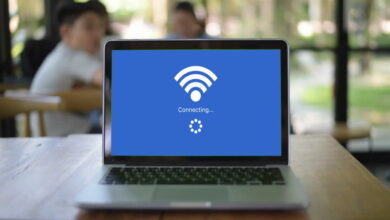How to Estimate the Battery Life of Any Laptop: A Comprehensive Guide

As we become increasingly dependent on laptops for work, school, and entertainment, the battery life of our devices becomes more important than ever. But with so many factors affecting battery life, it can be difficult to estimate how long your laptop will last on a single charge.
TAKEAWAY
Estimating the battery life of any laptop involves considering various factors, including battery capacity, processor, display, graphics card, storage type, operating system, applications, and power settings. By using a formula that takes into account the battery capacity and power consumption of the laptop, you can estimate how long the battery will last on a single charge. However, keep in mind that this is just an estimate, and actual battery life can vary depending on usage patterns and other factors.
To maximize the battery life of your laptop, you can adjust the power settings and follow tips to conserve battery life, such as reducing screen brightness, disconnecting peripherals, and using Battery Saver mode. By understanding the factors that affect battery life and following the steps outlined in this guide, you can estimate the battery life of any laptop and get the most out of your device.
In this guide, we will explore the most important factors that affect battery life and provide you with a step-by-step process to estimate the battery life of any laptop.
Factors That Affect Battery Life
Before we get into the process of estimating battery life, let’s first explore the key factors that affect how long your laptop can run on a single charge. These factors include:
Battery Capacity
The battery capacity is the amount of energy that a battery can store. Typically, this is measured in milliampere-hours (mAh) or watt-hours (Wh). The higher the battery capacity, the longer your laptop can run on a single charge.
Processor
The processor is the brain of your laptop, and it consumes a significant amount of power. A more powerful processor will consume more power and reduce battery life.
Display
The display is one of the most power-hungry components of a laptop. A larger display with higher resolution will consume more power and reduce battery life.
Graphics Card
If your laptop has a dedicated graphics card, it will consume more power than an integrated graphics card, reducing battery life.
Storage Type
The type of storage in your laptop can also affect battery life. Solid-state drives (SSDs) consume less power than hard disk drives (HDDs) because they have no moving parts.
Operating System and Applications
The operating system and applications you use can also affect battery life. Some operating systems and applications are more power-hungry than others, consuming more power and reducing battery life.
Power Settings
Finally, the power settings on your laptop can have a significant impact on battery life. By adjusting the power settings, you can extend or reduce the battery life of your laptop.
Steps to Estimate Battery Life
Now that we understand the key factors that affect battery life, let’s take a look at the steps you can take to estimate the battery life of any laptop.
Step 1: Check the Battery Capacity
The first step is to check the battery capacity of your laptop. This information is usually available in the laptop specifications or in the manufacturer’s manual. If you can’t find this information, you can use a utility like BatteryInfoView to determine the battery capacity.
Step 2: Determine the Power Consumption
The power consumption of your laptop will depend on the factors we discussed earlier, including the processor, display, graphics card, storage type, operating system, and applications. To estimate the power consumption, you can use a utility like HWMonitor to monitor the power consumption of your laptop while performing typical tasks.
Step 3: Calculate the Estimated Battery Life
Once you have determined the battery capacity and power consumption, you can calculate the estimated battery life of your laptop. The formula to calculate the estimated battery life is:
Battery Life = Battery Capacity / Power Consumption
For example, if your laptop has a battery capacity of 50Wh and consumes 10W of power, the estimated battery life would be:
Battery Life = 50Wh / 10W = 5 hours
Keep in mind that this is just an estimate, and actual battery life can vary depending on usage patterns, power settings, and other factors.
Step 4: Adjust the Power Settings
Finally, you can adjust the power settings on your laptop to extend or reduce battery life. In Windows, you can access the power settings by clicking on the battery icon in the taskbar and selecting “Power & sleep settings
“. Here, you can choose from several power modes, including Battery Saver, Balanced, and High Performance. Battery Saver mode reduces power consumption by limiting background activity, while High Performance mode increases power consumption to improve performance.
In addition to the power modes, you can also adjust individual settings like screen brightness, sleep settings, and Wi-Fi connectivity to further extend battery life.
Tips to Maximize Battery Life
While estimating battery life is helpful, it’s even better to maximize battery life to get the most out of your laptop. Here are some tips to help you extend the battery life of your laptop:
- Reduce screen brightness: The display is one of the biggest power consumers in a laptop. By reducing the screen brightness, you can significantly extend battery life.
- Disconnect peripherals: USB devices, external hard drives, and other peripherals can consume power even when not in use. Disconnect these devices when not in use to conserve battery life.
- Use Battery Saver mode: Battery Saver mode is designed to reduce power consumption by limiting background activity. Enable Battery Saver mode when you need to extend battery life.
- Close unused applications: Applications running in the background can consume power even when not in use. Close unused applications to conserve battery life.
- Use the right power settings: Using the right power settings can make a big difference in battery life. Use Battery Saver mode when you need to conserve battery life, and High Performance mode when you need maximum performance.
- Keep your laptop cool: Heat can reduce the efficiency of your laptop’s battery. Keep your laptop cool by using a cooling pad or placing it on a hard surface.
FAQ: How To Estimate The Battery Life Of Any Laptop?
1. Estimate The Battery Life Of Any Laptop?
Estimating the battery life of any laptop involves considering various factors that affect battery life, including battery capacity, processor, display, graphics card, storage type, operating system, applications, and power settings. By using a formula that takes into account the battery capacity and power consumption of the laptop, you can estimate how long the battery will last on a single charge. However, keep in mind that this is just an estimate, and actual battery life can vary depending on usage patterns and other factors.
To estimate the battery life of a laptop, you can follow the steps outlined in this guide, which involves checking the battery capacity, determining the power consumption, and calculating the estimated battery life using a formula. By adjusting the power settings and following tips to maximize battery life, you can extend the battery life of your laptop and get the most out of your device.
2. How long does a 50Wh battery last?
A 50Wh battery can last anywhere from 3 to 8 hours, depending on the power consumption of the laptop. The actual battery life will depend on various factors, including the processor, display, graphics card, storage type, operating system, applications, and power settings. By estimating the power consumption of the laptop and using a formula that takes into account the battery capacity, you can calculate the estimated battery life of a laptop with a 50Wh battery.
Keep in mind that the estimated battery life is just an estimate, and actual battery life can vary depending on usage patterns and other factors. To maximize the battery life of a laptop with a 50Wh battery, you can adjust the power settings and follow tips to conserve battery life, such as reducing screen brightness, disconnecting peripherals, and using Battery Saver mode.
3. Is 1.5 hours of battery life good for a laptop?
A battery life of 1.5 hours is considered to be quite low for a laptop, and it may indicate that there is an issue with the battery or the power settings. Typically, a laptop battery should last at least 3 hours on a single charge, and some high-end laptops can last up to 12 hours or more.
To improve the battery life of your laptop, you can adjust the power settings to reduce power consumption, close unused applications, disconnect peripherals, and reduce screen brightness. If your laptop battery is still not lasting as long as it should, you may need to replace the battery or have it serviced by a professional.
4. How long will a 40ah battery last?
The battery life of a 40Ah battery will depend on the power consumption of the device that it powers. A 40Ah battery can store 40 ampere-hours of energy, which is a measure of the amount of energy that the battery can deliver over time. The actual battery life will depend on various factors, including the device’s power consumption, usage patterns, and other factors.
To estimate the battery life of a device with a 40Ah battery, you can follow the same steps outlined in this guide for estimating laptop battery life. By determining the power consumption of the device and using a formula that takes into account the battery capacity, you can calculate the estimated battery life of the device.
5. Is it OK to use laptop while charging?
It is generally safe to use a laptop while it is charging, but there are some things to keep in mind. First, using the laptop while it is charging can generate heat, which can reduce the efficiency of the battery and reduce its lifespan. To minimize heat generation, you should use the laptop on a hard surface that allows for good airflow.
Second, using the laptop while it is charging can increase the power consumption of the device, which can reduce
battery life. This is because the laptop is consuming more power than it is receiving from the charger. To avoid reducing the battery life, you should use the laptop in Battery Saver mode or reduce power consumption by closing unused applications, reducing screen brightness, and disconnecting peripherals.
In general, it is best to avoid using the laptop while it is charging unless it is absolutely necessary. If you need to use the laptop for an extended period of time, it is better to fully charge the battery before using it and then unplug the charger when the battery is full.
6. What is the battery life of laptop?
The battery life of a laptop can vary widely depending on various factors, including battery capacity, processor, display, graphics card, storage type, operating system, applications, and power settings. Generally, a laptop battery should last at least 3 hours on a single charge, and some high-end laptops can last up to 12 hours or more.
To estimate the battery life of a laptop, you can follow the steps outlined in this guide, which involves checking the battery capacity, determining the power consumption, and calculating the estimated battery life using a formula. Keep in mind that the estimated battery life is just an estimate, and actual battery life can vary depending on usage patterns and other factors.
To maximize the battery life of a laptop, you can adjust the power settings and follow tips to conserve battery life, such as reducing screen brightness, disconnecting peripherals, and using Battery Saver mode.
7. How many Watt Hours is good for a laptop battery?
The number of Watt Hours (Wh) that is good for a laptop battery will depend on the specific laptop and its power consumption. Generally, a higher Watt Hour rating indicates a higher battery capacity and longer battery life. Most laptops have a battery capacity of between 30Wh and 80Wh, with some high-end laptops having a battery capacity of over 100Wh.
To estimate the battery life of a laptop based on its Watt Hour rating, you can use a formula that takes into account the battery capacity and power consumption of the laptop. By adjusting the power settings and following tips to conserve battery life, you can maximize the battery life of your laptop and get the most out of your device.
Conclusion
Battery life is an important factor to consider when purchasing a laptop, as it affects the portability and usability of the device. By understanding the factors that affect battery life and following the steps outlined in this guide, you can estimate the battery life of any laptop and maximize its battery life to get the most out of your device.
Keep in mind that the estimated battery life is just an estimate, and actual battery life can vary depending on usage patterns and other factors. By adjusting the power settings and following tips to conserve battery life, you can extend the battery life of your laptop and enjoy longer usage time.
In conclusion, estimating the battery life of a laptop is an essential step in managing the device’s power consumption. With the right approach, you can extend the battery life of your laptop and get the most out of your device.




